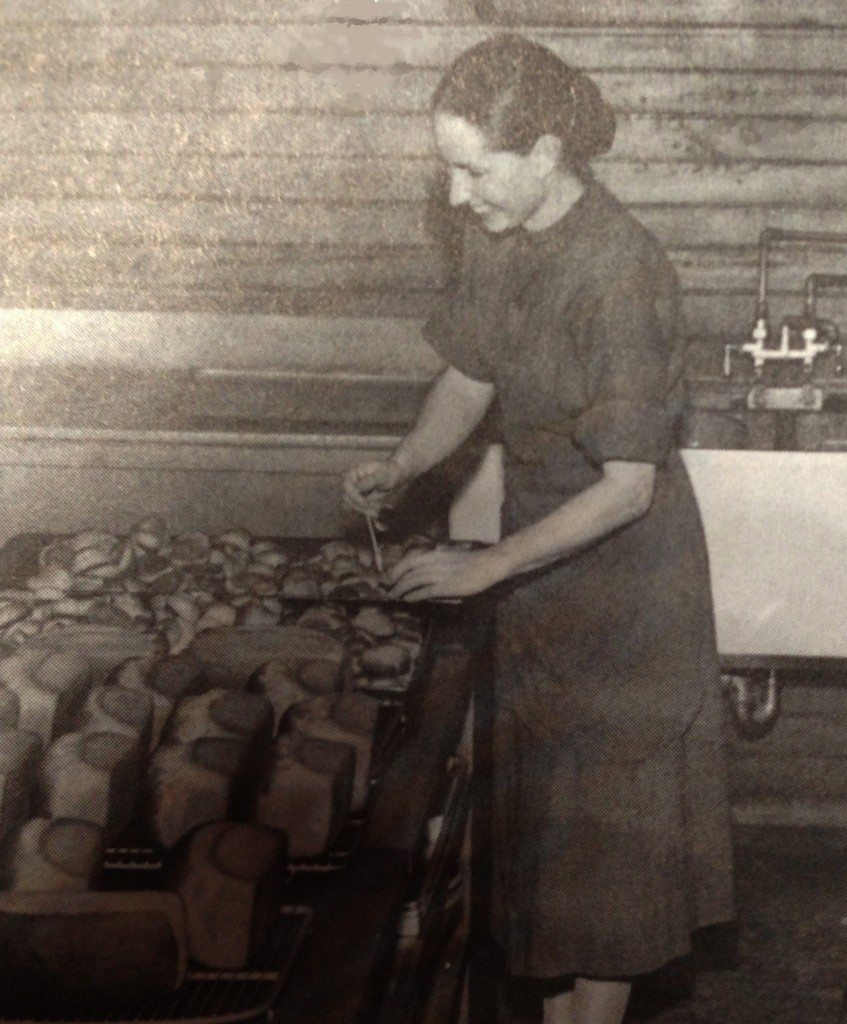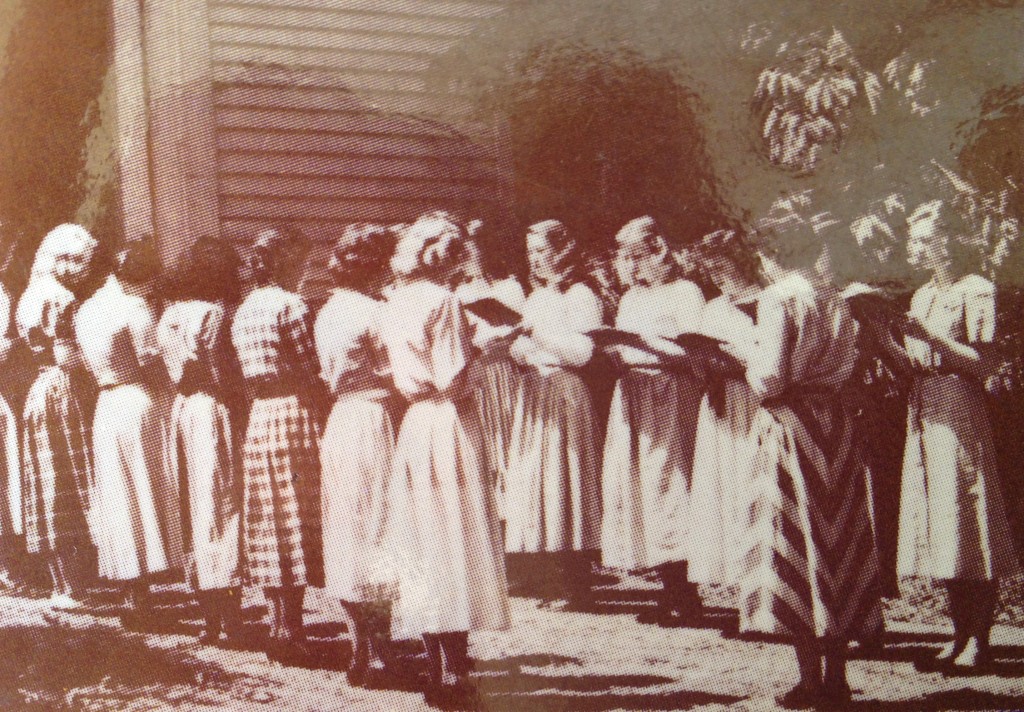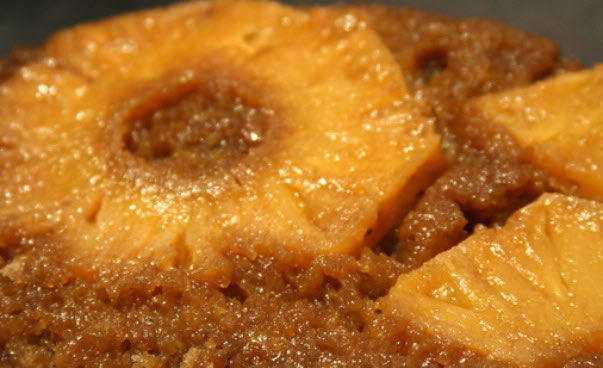This is the bakery, Marge says. We are in a small, cozy room in the building across the yard from the main house. The room has a delicious smell, like fresh bread. There is an electric stone grinder for flour.
We eat only whole wheat here, Marge explains. We mix hard durum wheat, which we buy, and soft wheat that we grow here. White flour is not good for you.
The brown bread at lunch was good. But you can’t imagine how good the bread is in Macau. And the Portuguese rolls with sliced pork that we take to the beach, what is better? All are white.
Why is white flour not good? The firmness of her tone warns me that questioning her would fall into the murky area of what the nuns regarded as “insolence.” I am not going there.
On the wooden counter is a large, smudged card with a hand-written recipe for pineapple upside-down cake. All the ingredients you need are here, she gestures towards the small refrigerator. The batter will fit into these two pans. Two large, rectangular pans are set out. Marge says the cakes are our dessert for supper tonight. Then she’s gone.
The recipe says to cream the shortening. What is shortening? There are no cookbooks. I saw where the kitchen is in the main house. I run across the yard.
It’s butter! The women in the kitchen giggle as I run back to the bakery. I take the solid blocks of butter out of the fridge. Cream it? Do I add cream? No, there is no cream listed in the recipe. I run back to the kitchen.
You beat the butter with a wooden spoon until it becomes creamy. They don’t say stupid because they are trying to be charitable.
I beat the solid chunks of butter until I manage to reduce them to pea-sized chunks. That must be enough. I add the sugar, eggs, and alternate the dry ingredients with milk. What I get is flour coated lumps of butter floating on a large bowl of cold milk. Even I know that if I poured that over the pineapple slices I would not get cakes from the oven.
No way will I run back to that kitchen. I find a pot and stir the mixture over the stove. Eventually, it all melts together so that I think it must be what a batter looks like. I divide it over the two pans and stick them in the oven. While the cakes bake, I clean up the mess. There is no mystery to that.
I join about a dozen women in the courtyard standing in two rows facing one another with open breviaries in their hands. They all wear dresses or skirts and blouses. No one looks like a farmer. No pants are allowed here. I did not bring my jeans or shorts.
We sing Vespers in English. I know about Vespers, but I thought only nuns and priests prayed them, and always in Latin.
There are about twenty people at dinner. All are women. Most of them are in their twenties or thirties. There is no one my age. Someone says the year school has not started yet, and that in another week or two there will be others closer to my age.
The women are cheerful and friendly. Someone says that when she heard that doreen cotton has arrived, she thought they were announcing a new fabric. We all laugh.
We stand around rectangular, bare wooden tables set with thick, beige stoneware. Designated servers place dishes of food on each table, to be passed around.
The head table has a centerpiece of berries and ferns. The woman who presides over the meal says grace, and we all sit down.
I don’t remember the conversation at our table. I mostly listen, but what they say seems remote. No one asks me a personal question, or anything about my trip all the way from Macau, or how I am doing since I arrived. But they smile a lot in the cryptic way that Mary did on the bus.
Before dessert, someone rises and walks to the side. Everyone stops talking. She reads from a book. It is a kind of religious tract. It seems longer than a typical sermon.
As Marge said, dessert is my cakes. They have flipped the cakes so that the pineapple is on top, cut them into squares, and put large dollops of freshly whipped cream over them. The thick sweet cream is from the cows in the barn and is so delicious that it turns the pineapple cake into forbidden fruit. It would probably do as much for any dish you want to transform. No one leaves a crumb.
Next thing I know, they make me the new baker for the duration, which is until the “Year School” starts.




Recent Comments